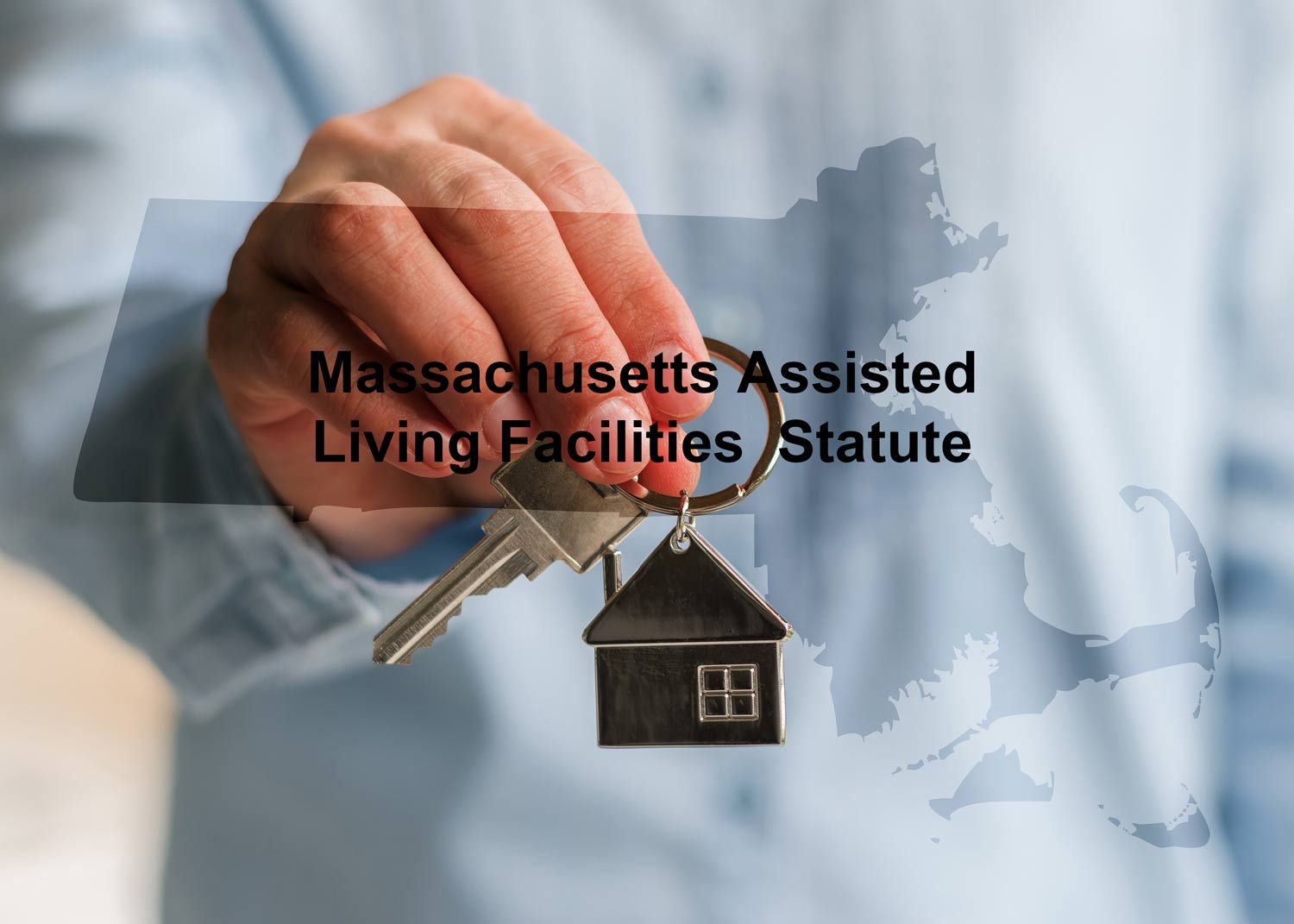.png?width=724&name=monthly-recap%20(1).png)
From no-contest clauses in Wyoming, to charitable deduction reporting to the IRS, to SALT deductions in New Jersey, there are a variety of recent developments in estate planning and business law. To help you stay abreast of current developments, here are a few highlights.
Wyoming Supreme Court Enforces No-Contest Trust Provision Against Trust Beneficiary
Gerald E. Gowdy (Appellant) v. Dennis C. Cook, Craig C. Cook and Cook and Associates, P.C. (Appellees) (January 8, 2020)
The Wyoming Supreme Court affirmed the district court ruling and enforced a no-contest trust provision against the primary trust beneficiary. The trust beneficiary had requested that the district court enter a decanted trust to remove the requirement that a corporate trustee have assets or insurance coverage of at least one hundred million dollars. Under the trust’s no-contest provision, however, the trust beneficiary would lose his or her rights under the trust for seeking any court proceeding attempting to void, nullify or set aside the trust or any of the trust’s provisions.
Background. In the district court as plaintiff and in the Wyoming Supreme Court as appellant, the trust beneficiary had complained that the trust was being mismanaged and asked the successor trustee to resign. The trust beneficiary also complained about the no-contest and trustee exculpatory provisions. In addition, the trust beneficiary asserted that the successor trustee, who was also the drafter of the trust, was negligent in drafting the estate planning documents and had failed to recognize potential conflicts of interests between the trust beneficiary, the trustmaker (who also served as the initial trustee), and the successor trustee. The trust beneficiary sought a declaratory judgment prohibiting the use of trust resources to defend the action and asked the court to remove the successor trustee; award monetary damages including attorney fees; require a trust accounting; and enter a “decanted trust” to “repair issues” due to drafting errors.
In response, the successor trustee (the appellee) refused to resign and counterclaimed for a declaratory judgment ruling that the trust beneficiary, under the non-contest provision of the trust, had forfeited his rights a beneficiary by seeking to void, nullify, or set aside a provision of the trust. The trust’s no-contest provision stated that:
“The right a beneficiary to take any interest given to him or her under this trust or any trust created under this trust instrument will be determined as if the beneficiary predecease [the trustmaker] without leaving any surviving descendants if that beneficiary… engage in any of these actions: … seeks to obtain adjudication in any court proceeding that [the trust] or any of its provisions is void, or otherwise seeks to void, nullify, or set aside [the trust] or any of its provisions.”
The Wyoming Supreme Court affirmed the district court’s finding that the beneficiary’s efforts to change the trust terms triggered the no-contest provision. The Court reasoned that the plain language of the no-contest clause was clear and unambiguous as to the settlor’s intent. The beneficiary argued that the no-contest provision should not apply because he wasn’t attempting to change the asset distribution. The Court disagreed and allowed testimony from the estate attorneys claiming the settlor wanted a no-contest provision included in the trust to discourage this beneficiary (and the other beneficiaries) from challenging the others’ interest under the trust. This included any attempted change to the trust—not just provisions involving the distribution scheme. As a result, the beneficiary’s s actions triggered the no-contest clause and he forfeited his rights to inherit under the trust.
Takeaways: No-contest or in terrorem clauses are valid in Wyoming. Many states will enforce no-contest clauses drafted in trusts and in contracts. The intent of the settlor regarding contests to the trust is controlling. Courts will usually apply the same rules that govern the interpretation of contracts, which includes an objective approach to examining the trust language. Courts look to the intent of the settlor by examining the entire trust agreement and looking at the clear language of the trust provisions.
Private Letter Rulings: Trusts Allowed to Make Late Election to Deduct Charitable Distributions After Close of Taxable Year
In three recent private letter rulings (PLRs 202001013, 202001014, and 202001015), the Internal Revenue Service (IRS) addressed the charitable contributions “set aside” deduction and granted an extension of time to make an election under Section 642(c) of the Internal Revenue Code. Section 642(c) provides that an estate or trust may claim an unlimited deduction of gross income that is permanently set aside for charitable purposes, under the terms of the governing instrument, during the tax year. A current deduction may be claimed under Section 642(c), even if the charitable amount will not be paid or used for a charitable purpose until a future date. For example, if a charitable contribution is paid after the close of the tax year A, on or before the last day of the following year B, then the trustee may elect to treat the charitable contribution as paid during tax year A. However, the 642(c) election must be made no later than the time of filing the income tax return for the succeeding tax year.
In these letter rulings, the IRS approved a 120-day extension within which a trustee could make the election under Code Sec. 642 (c) to treat a distribution paid to charity in year two as having been made in year one. The trust’s tax advisor failed to timely file the trust’s year two Form 1041 (fiduciary income tax return) that included the trust’s Section 645 election to be treated as a part of the related estate, hence the requests for public letter rulings. Section 301.9100-1(c) provides that the Commissioner may grant a reasonable extension time to make a regulatory or statutory election. In these letter rulings, extensions were granted because the taxpayers provided evidence, including affidavits, to satisfy the Commissioner that the taxpayer acted reasonably and in good faith and that the grant of relief would not prejudice the interests of the government.
Want more news on current events impacting your business or estate planning practice? Subscribe to WealthCounsel's emails on breaking industry news.
Takeaways:
- Extensions of time to make elections. Section 301.9100-1(c) of the regulations provides that the Commissioner may grant a reasonable extension of the rules set forth in 301.9100-2 and 301.9100-3 to make a regulatory election, or a statutory election, but not more than 6 months except in the case of a taxpayer who is abroad.
- Private letter rulings: A private letter ruling (PLR) is a written decision in response to a taxpayer’s request for guidance regarding their specific tax situation at the time of the request, including what tax treatment to expect and the rationale behind the decision. A PLR interprets the tax laws and can help a taxpayer confirm whether a potential action will result in a tax violation, but in no way does the PLR bind the IRS to take a comparable position when responding to other taxpayers. PLR’s of other taxpayers cannot be used as precedent by a person requesting a ruling regarding their own issue. While PLR’s can offer helpful guidance to a taxpayer, a PLR should not be wholly relied upon since it applies only to the requesting taxpayer’s unique circumstances and facts
Complex vs. simple trusts: The trusts involved in these recent private letter ruling likely would be classified as “complex” trusts. A complex trust may retain all or part of its current income and, if directed by the trust instrument, may make charitable contributions. In contrast, simple trusts are not permitted to make charitable contributions since all income must be distributed to the trust’s beneficiaries. Under 26 U.S. Code Section 651, a simple trust:
- must provide that all the income is to be distributed currently to the beneficiaries; and
- does not provide that any amounts are to be paid, permanently set aside, or used for charitable purposes or contributions during the taxable year.
Classification of a trust as “complex” or “simple” is determined annually for the purpose of paying federal income taxes.
New Jersey Enacts Pass-Through Business Alternative Income Tax Act
NJ S.B. 3246
Under the Pass-Through Business Alternative Income Tax Act, signed by New Jersey Governor Phil Murphy on January 13, 2020, pass-through entities—partnerships, federal S corporations that have made the New Jersey S corporation election, and limited liability companies having at least one member liable for tax on their share of distributive proceeds under New Jersey law in a taxable year—can elect to pay income taxes at the entity level instead of the personal income tax level. It is a workaround for the $10,000 cap on the state and local tax (SALT) deductions put in place by the 2017 Tax Cuts and Jobs Act and is effective for tax years beginning on or after January 1, 2020. The law, which is projected to save business owners $200 to $400 million annually on their federal tax bills, enables taxpayers to deduct the cost of state taxes as an operating expense, which has no federal limit.
Takeaways: This legislation is similar to statutes enacted in Connecticut, Louisiana, Oklahoma, Rhode Island, and Wisconsin aimed at minimizing the effects of the SALT cap on small businesses. The IRS issued regulations in 2018 barring another effort to circumvent the SALT cap, i.e., state or local government-run charitable funds set up in New York, New Jersey, and Connecticut which would have allowed taxpayers to contribute as a way of paying their state taxes and receive tax credits to avoid the SALT cap. In the absence of regulations barring the workaround for pass-through entities, additional higher-tax states such as Arkansas, Michigan, and Minnesota are likely to enact legislation similar to the New Jersey law.
Consumer Data Privacy Legislation Proposed in Florida
FL S.B. 1670/H.B. 963
In Florida, new legislation has been proposed requiring operators of websites or online services with an online presence in Florida to provide consumers with notice of the personal information collected from those consumers on the website or through the service and allowing consumers the opportunity to opt out of the sale of their personal information. In its current form, the legislation does not appear to require operators to explicitly disclose the right to opt out in the privacy notice. The proposed legislation would also prohibit the use of an individual’s personal data acquired from public records to be used for marketing or soliciting the sale of products or services to the individual or contacting them for that purpose in the absence of the individual’s consent. Although the bill is not as broad as the recently enacted California Consumer Privacy Act, it would significantly increase the privacy rights of Florida residents. If passed, the legislation will take effect on July 1, 2020.
Takeaways: Businesses serving Florida residents should be poised to take steps to comply with the law if enacted, particularly if they have not already implemented privacy notices, disclosures, and opt-out opportunities for consumers that comply with laws now in effect in California and Nevada. Even if Florida businesses affected by the proposed legislation are in compliance with the consumer data privacy laws of other states, if the Florida law is passed, their notices and opt-out opportunities should be reviewed to ensure compliance with the version ultimately enacted. Other states, including Illinois, Washington, Nebraska, New Jersey, New Hampshire, Virginia, and Hawaii, are currently considering similar legislation.
WealthCounsel is passionate about helping its members stay on top of legal changes that may affect their practices. Learn what other benefits our members enjoy, such as access to on-demand webinars, live CLE opportunities, premier legal drafting software for estate and business planning, and a nationwide professional community.



